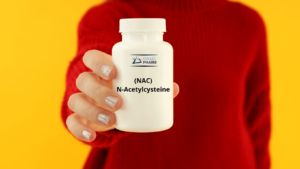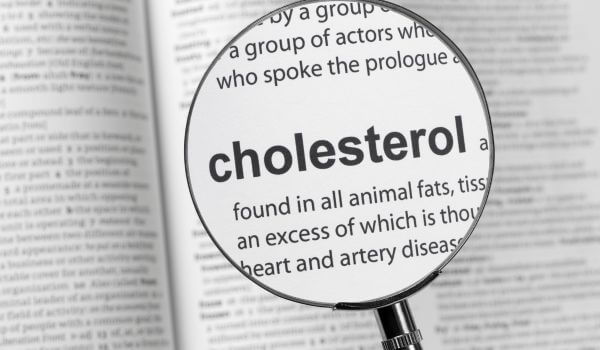 It’s been just over a year since the US Food and Drug Agency (FDA) notified health supplement manufacturers that it was refusing their petition against the decision to block the marketing of NAC (N-acetyl-L-cysteine, aka n-acetylcysteine) as a food supplement. This decision has deep consequences for all of the parties involved in the supply chain of NAC, and also for consumers.
It’s been just over a year since the US Food and Drug Agency (FDA) notified health supplement manufacturers that it was refusing their petition against the decision to block the marketing of NAC (N-acetyl-L-cysteine, aka n-acetylcysteine) as a food supplement. This decision has deep consequences for all of the parties involved in the supply chain of NAC, and also for consumers.
As research progresses into the multiple benefits of NAC, more and more uses are being found for it. But as long as the bureaucratic hurdles are being maintained by the authorities in the US, the best place to find a source of n-acetylcysteine is here on IsraelPharm, the home of medical-grade NAC in the form of Reolin.
Bottom line – it makes far better sense to follow the lead of science and apply these findings than to wait for the committees in Washington to find their way onto the current market.
How we got to this block in the road for .
Here’s a short summary of the history of NAC, bringing us up to the present:
| 1963 | Patent registered for N-acetyl-L-cysteine | Mucolytic-nu-acylated sulfhydryl compositions and process for treating animal mucus. |
| 1968 – 1985 | Approved by the FDA for use intravenously, by mouth, or inhaled as a mist. |
|
| 2000 – present | Off-label use by prescription |
|
| 2017 – | Research into new usage of NAC to combat the negative effect of oxidative stress |
|
| Studies into other uses, with positive results in several fields: |
|
|
| 2021 | Listed by the World Health Organization as one of the 100 essential medicines – under Antidotes and other substances used in poisoning | |
| 2021 | FDA notified manufacturers and retail platforms like Amazon that NAC can not be marketed as a dietary supplement, because it had previously been registered or approved as a drug. | |
| April 2022 | Following petitions from suppliers, the FDA released draft guidance on its policy regarding products labeled as dietary supplements that contain N-acetyl-L-cysteine. | |
| August 2022 | The FDA announced final guidance on its policy regarding products labeled as dietary supplements that contain N-acetyl-L-cysteine (NAC). | |
Bureaucratic blocks have been thrown up by the FDA, citing the Dietary Supplement Health and Education Act of 1994 (DSHEA), which defines the term “dietary supplement” and changed the way dietary supplements are regulated.
As part of this new framework for dietary supplement regulation, DSHEA also amended the FD&C Act by defining the term “new dietary ingredient (NDI)”, and this requires the manufacturer or distributor of an NDI, or of the dietary supplement that contains the NDI, to submit a premarket notification to FDA (an NDI notification) unless the “new dietary ingredient” was not marketed in the United States before October 1994 and does not include any dietary ingredient which was marketed in the United States before that date.
The exclusion clause does not distinguish between dietary ingredients marketed before October 1994, and those first marketed after that date. Nor does the exclusion clause distinguish between drugs approved before and those approved after that date.
The FDA has reached this decision based on the position that NAC was, in fact, registered as a prescription-only drug before it was marketed as a dietary supplement, and must therefore be withdrawn from general sale unless it’s against a prescription.
What does all of this mean for people who need NAC?
The FDA still approves of the marketing of NAC as the approved therapy for acetaminophen (paracetamol) overdosing (hepatotoxic doses of acetaminophen), on the basis that it has proven to be completely effective if given within eight hours of the ingestion of the substance. However, the only approved format is as an injectable.
But as more and more usefulness is being discovered in current research, it is coming in different formats of NAC from the injectable or inhalers that are the only available prescribable doses.
The good news is that the fact that the FDA is throwing up these blocks is unique only to the availability of NAC in the US. By contrast, in the UK, Australia, New Zealand and here in Israel, marketing of NAC in other forms, such as Reolin, is approved through pharmacies as long as they are prescribed by a physician.
Reolin is effective at reducing and breaking down excess sputum and mucus produced in people who suffer regularly from asthma and allergies, or who catch chesty colds in colder weather. It is used to clear up symptoms as the primary therapy or as an adjunct to regular treatment.
As well, in larger doses, it can already be prescribed for more serious conditions like cystic fibrosis, bronchitis, tuberculosis and pneumonia. N-acetylcysteine is also being used off-label to reduce the symptoms of depression, obsessive behavior and cravings.
Much more is coming down the road, as research progresses, but in the meantime, don’t let the hurdles stop you from getting your hands on NAC, when your healthcare physician judges that it’s right for you.
FAQ
What is N-acetylcysteine used for?
Doctors prescribe NAC to treat paracetamol overdose and to break up mucus in people with chronic bronchitis and other lung diseases. There’s research into a wide range of other possibilities, such as kidney or neurologic damage caused by drugs, ADHD, Covid-19, psychiatric disorders, and progressive myoclonic epilepsy.
Is NAC safe to take every day?
There is no recommended limit to the daily intake of NAC. In countries other than the US, such as Australia, the UK and Israel, it can only be supplied as a pharmaceutical medication against a doctor’s prescription, and should be taken only in the dosage prescribed.
Why take NAC for COVID?
NAC has been found to have modulating effects on the immune and inflammatory response, and to have an antiviral effect. These pharmacological activities make it a potential therapeutic agent for COVID-19.
Notes
[1] Acetylcysteine. The American Society of Health-System Pharmacists.
[2] WHO List of 100 Essential Medicines
[3] Oral and Intravenous Acetylcysteine for Treatment of Acetaminophen Toxicity: A Systematic Review and Meta-analysis. The Western Journal of Emergency Medicine.
















